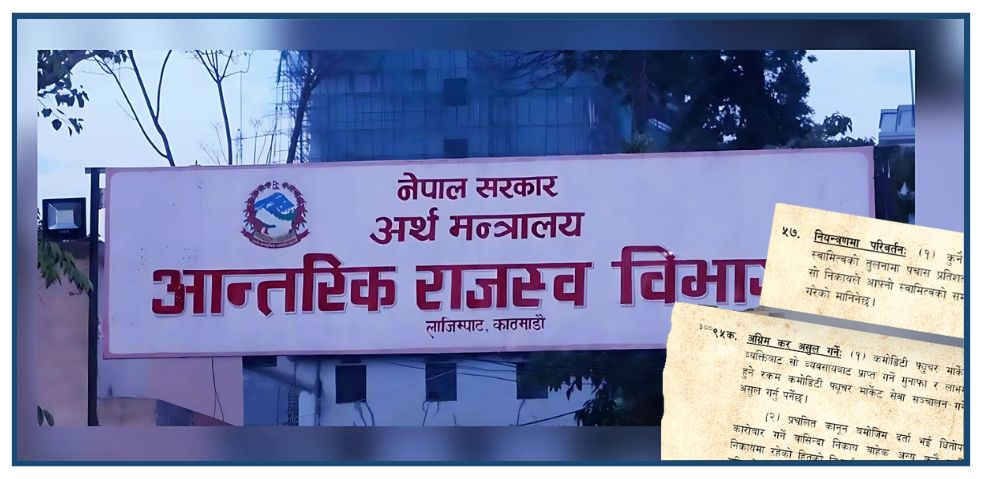The government seems unwilling to address the issue of double taxation being imposed through Sections 57 and 95(Kha) of the Income Tax Act.
What Do These Sections Say?
-
Section 57: If more than 50% ownership of a company changes compared to the past three years, it is considered a change in control. In such cases, the company is taxed 25% on the profit, based on the difference between the current market value and the original investment value.
-
Section 95(Kha): If someone earns a profit by selling shares of an unlisted company, they must pay capital gains tax. The rate is:
-
10% for individual residents,
-
15% for resident entities,
-
25% for others.
-
For example, if someone buys a share for Rs. 100 and sells it for Rs. 150, Rs. 50 profit is taxed.
Double Taxation on One Transaction
When more than 50% of a company’s shares are sold, both Section 57 and Section 95(Kha) apply, resulting in double taxation on the same transaction. This often leads to a combined tax burden of over 50%, which investors and tax experts have long criticized.
They have been demanding changes to this system, but the upcoming budget for Fiscal Year 2082/83 (2025/26) does not include any major reform in this area.
Limited Changes Proposed
Officials from the Ministry of Finance and the Inland Revenue Department say discussions have been held about changing Section 57. However, the only proposed change is not to impose tax when shares are transferred due to the death of a family member.
They believe no other significant amendments are likely.
Why Is Double Taxation a Problem?
Under Section 57, when a company changes control (i.e., more than 50% ownership changes), it is assumed that all assets and liabilities have been sold at market value. The company then has to pay 25% tax on the resulting gain.
Under Section 95(Kha), when someone sells shares and makes a profit, they also need to pay tax on that profit. For example, if shares were bought at NPR 100 and sold at NPR 150, the tax applies on the NPR 50 gain.
If less than 50% of shares are sold, only Section 95(Kha) applies, and there is no issue. But if more than 50% are sold, tax offices apply both sections, collecting tax under both.
Reports and Legal Opinions
Several studies and experts say this double taxation must be removed. Even Section 57 alone needs improvement.
The Confederation of Nepalese Industries (CNI) has prepared a report suggesting how to resolve this double taxation.
In the Ncell vs Government of Nepal case, the International Centre for Settlement of Investment Disputes (ICSID) highlighted that taxing under both sections causes double taxation, which is not acceptable under international law. ICSID noted that if capital gains tax has already been paid under Section 95(Kha), applying Section 57 again amounts to unfair double taxation.
The decision also mentions that the issue is under review at Nepal’s Supreme Court.
Recommendation for Repealing Section 95(Kha)
A top-level panel headed by ex-Finance Secretary Rameshwor Khanal suggested removing Section 95(Kha) to eliminate the issue of double taxation.
Share Transfers After Death or Property Division
Currently, even if shares are transferred to a family member after someone’s death or after a property division (Anshabanda), the law treats it as a change in control and imposes a 25% tax under Section 57.
However, the government is preparing to change this, recognizing that:
-
There is no income or capital gain in such cases.
-
The Income Tax Act already says that no tax should apply on property transferred within three generations or through inheritance. Still, due to Section 57, tax is often imposed, which feels like a tax on ancestral property.
Officials say that a proposal to amend this is in progress and may be included in the budget.
Previous Partial Reform
Last year, a temporary rule was introduced to avoid tax when capital is increased in a company, even if more than 50% ownership changes. But this was later limited to startups only after facing criticism.
Need for Broader Reform
Experts say these small amendments are not enough. A chartered accountant stated:
“Sections 57 and 95(Kha) are the biggest barriers to investment in Nepal. Major changes are needed, but who has the courage to make them?”





